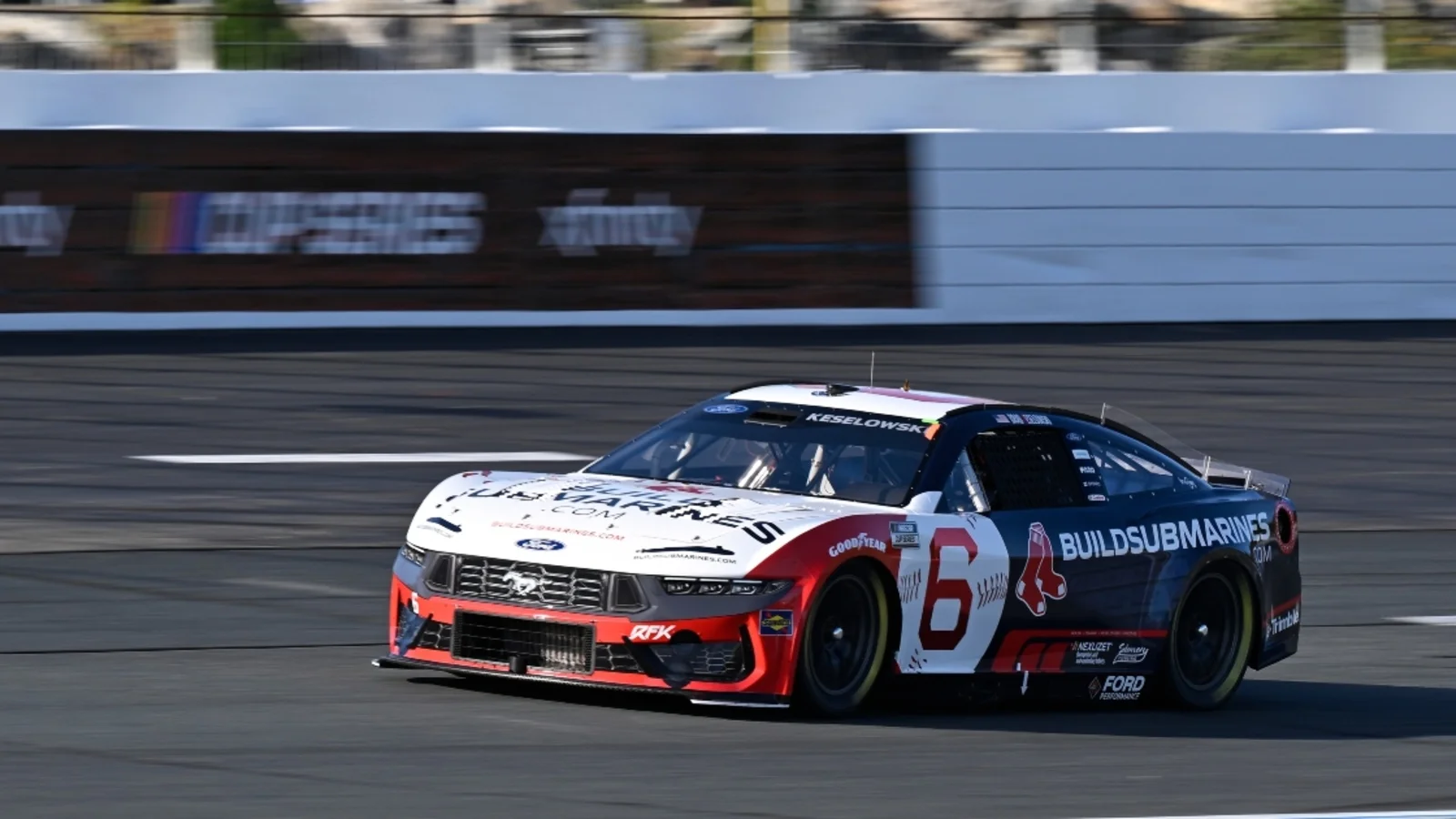The 2025 NASCAR Cup Series season has brought growing scrutiny of the sport’s direction, with prominent figures like Brad Keselowski voicing sharp criticism about its underlying problems. In recent commentary, Keselowski’s warnings about NASCAR’s financial approach have placed the spotlight on structural issues that, he argues, could undermine the sport’s long-term viability, bringing Brad Keselowski NASCAR criticism to the forefront.
Keselowski Calls Out NASCAR’s Business Structure
Amid concerns over waning excitement, disputed playoff credibility, and inconsistent race quality, Brad Keselowski is intensifying the debate around the very foundation of NASCAR’s model. Unlike regular conversations that center on the competition format or rules, Keselowski’s focus is on the economic backbone of the sport and its overreliance on television revenue instead of track-generated profits. He shared these thoughts as a guest on the Stacking Pennies Podcast hosted by Corey LaJoie, discussing the influence of media deals and warning about the risks stemming from the current business setup.
During this appearance, Keselowski explained,
“The tracks aren’t able to generate revenue on their own, they’re wholly reliant on the TV money… They’re comfortable with that which is the scariest part of all.”
— Brad Keselowski, Driver and Team Owner. This pointed criticism comes at a time when NASCAR faces fresh pressure from the rising popularity of international series like F1, which have been eroding NASCAR’s traditional audience and prestige.
How Reliance on TV Money is Impacting the Sport
The intricate issue that Keselowski highlights, which is rarely discussed openly, lies within the recent TV rights agreement. With tracks left dependent on revenue streams coming almost exclusively from broadcast deals, instead of direct interaction with ticket-buying fans, a set of downstream effects has emerged.
Keselowski asserts that reliance on guaranteed income from TV contracts has left tracks and event organizers less motivated to market directly to attendees. As a result, physical attendance decreases, and ticket sales drop—a trend widely noted by insiders and fans alike.
“Clipped this from @keselowski ‘s appearance on Stacking Pennies because I thought it was interesting: He says the biggest problem with NASCAR currently is the business model with the tracks, which are wholly reliant on TV money because they can’t generate enough revenue on their…”
— Steven Taranto, Reporter.
This reduced focus on fan engagement has, according to Keselowski, translated into teams and drivers prioritizing sponsorships over personal interaction with attendees. Teams know their basic costs are covered in advance, so there is less urgency to create memorable experiences or to energize the base. Living within this system, drivers have gradually become interchangeable faces, more closely associated with the Fortune 500 brands that back their cars than with a passionate, loyal fan base. The result, Keselowski suggests, is a diminished personal image for drivers and less star power to captivate international audiences.
Challenges Facing NASCAR’s Growth and Identity
As a team owner at RFK Racing and one of the sport’s prominent voices, Keselowski argues that these problems are interconnected and unlikely to resolve by themselves. The cycle of declining engagement, reduced ticket sales, and diminishing driver profiles is perpetuated by structural incentives in the business model—problems he believes will persist unless NASCAR’s core approach undergoes substantial reconsideration.
Keselowski’s warning comes at a delicate moment, with the industry only in the first year of a media agreement reportedly valued at $1.1 billion annually, extending through 2031. Under this arrangement, major outlets like Fox, NBC, Amazon Prime, Warner Bros Discovery, and TNT control the broadcast, bringing in 40 percent more revenue than the previous deal. This influx of TV money underscores Keselowski’s claim that tracks and teams are now built around guaranteed revenue, potentially to the detriment of the sport’s deeper connection with fans and its overall sustainability.
With established insiders such as Keselowski, Corey LaJoie, and media personalities like Steven Taranto drawing attention to these underlying weaknesses, the debate is no longer limited to just rules and race day controversies. Instead, Brad Keselowski NASCAR criticism now centers on existential business choices that could define the sport’s legacy for years to come.
Implications for NASCAR’s Future
The ongoing uncertainty surrounding NASCAR’s engagement model, as highlighted by Brad Keselowski, raises critical questions about the sport’s ability to evolve and retain its traditional appeal amid swift changes in the global motorsports landscape. If action is not taken at the foundational level, NASCAR risks continued decline in fan engagement and a loss of the customary passion that helped it thrive in previous decades. As the series adjusts to changing times, the effectiveness of the current model will remain a closely watched issue for drivers, owners, authorities, fans, and sponsors alike.
Clipped this from @keselowski 's appearance on Stacking Pennies because I thought it was interesting: He says the biggest problem with NASCAR currently is the business model with the tracks, which are wholly reliant on TV money because they can't generate enough revenue on their… pic.twitter.com/itQS1Xx848
— Steven Taranto (@STaranto92) September 25, 2025
